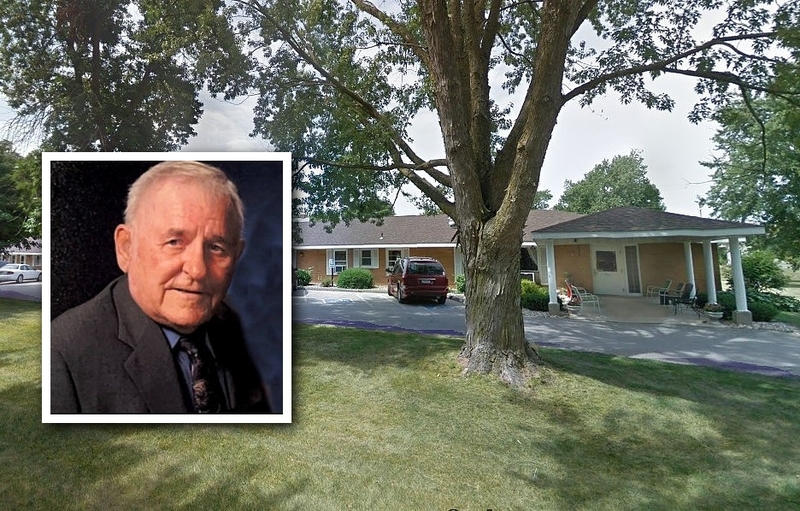State imposes $6,500 fine after Army veteran suffocates at Iowa nursing home

A northwest Iowa nursing home has been fined $6,500 for failing to suction the airway of a U.S. Army veteran who suffocated while employees of the home stood by.
According to public records, Marvin “Pete” Jacobs, 87, died Feb. 19 while sitting in his room at the Fonda Specialty Care facility in Pocahontas County. Jacobs had undergone a tracheostomy, and because his airway tended to become clogged, the staff kept a suctioning machine by his bedside.
On that afternoon, an aide later told inspectors, Jacobs was sitting in his recliner when another worker said Jacobs appeared to be “in trouble” and instructed her to get a nurse right away. Jacobs was pointing at his neck, gasping for air, and mouthing that he could not breathe, the aide told inspectors.
The aide said she left the room to get the nurse and was absent for a few minutes. The worker who remained in the room later told inspectors Jacobs grew “really pale” and was gasping, so she, too, left the room and approached a nurse and said, “Would you please suction him? He needs to be suctioned.”
When the nurse entered the room, Jacobs was pale, but soon turned purple and then blue, the aide later reported. The nurse took his vital signs and told the aide Jacobs was having a heart attack. The aide explained to the nurse that Jacobs had been signaling he couldn’t breathe, at which point the nurse said, “Just a minute,” and left the room. The suctioning machine sat idle on Jacobs’ nearby dresser.
The nurse later told inspectors the “staff wanted me to suction him (and) I told the staff no. I was told that I would not have to do anything with the tracheostomy.” The nurse said she first left the room to get supplies so she could check Jacobs’ blood pressure, pulse and oxygen levels and that when she returned, he was clammy and had an irregular pulse.
“I told the staff that I needed to go back to the nurses’ station and find out if the resident was a full code or DNR,” the nurse told inspectors, referring to do-not-resuscitate orders that some residents have in place.
She told inspectors that while she was checking on that, one of the aides approached her and said she was needed right away in Jacobs’ room. “I went back into his room and he had no blood pressure, no pulse, and no respirations. I pronounced him deceased,” she told inspectors.
She acknowledged her fellow workers had each told her Jacobs needed his airway suctioned and that he had been pointing to his neck and mouthing that he couldn’t breathe. She said that despite her colleagues’ comments, it never occurred to her to suction Jacobs’ airway.
The Iowa Department of Inspections and Appeals fined Fonda Specialty Care $10,000 for the death, then reduced that penalty 35%, to $6,500, due to the lack of an appeal in the case.
In its written response to DIA’s findings, the facility’s owners, Care Initiatives of West Des Moines, said it does not admit to any statements, findings or conclusions by the state inspectors and added that it “will continue to provide care and services” for respiratory patients, including airway suctioning.
Jacobs grew up in northwest Iowa, was the varsity catcher of the 1953 Auburn Tigers state baseball championship team, and a 1954 graduate of Auburn High School. From 1955 to 1957, he served in the U.S. Army while stationed in Korea. After his discharge, he and his wife, Darlene, raised three sons in northwest Iowa. Over the years, he worked as a farmer and served as a partner and owner of the Mill City Loader Corporation.
As part of its recent investigation into Jacobs’ death, DIA also investigated 10 separate complaints against Fonda Specialty Care, as well as two self-reported incidents. Only one of the complaints was deemed substantiated.
Last October, inspectors cited the home for 15 federal violations, including failure to implement comprehensive care plans, failure to provide adequate quality care, failure to keep the home free of accident hazards, failure to employ sufficient nursing staff, failure to provide nutritional food that was palatable and failure to implement adequate infection-prevention measures. No fines were imposed.
Last August, inspectors investigated nine complaints and two self-reported incidents. Four of the complaints were deemed substantiated and the home was cited for seven violations. No fines were imposed.








